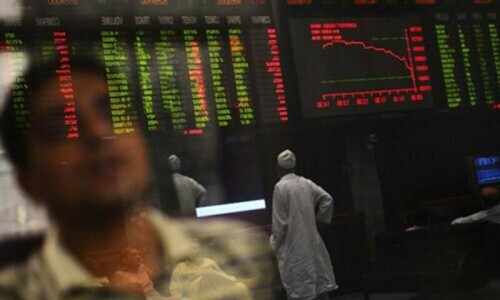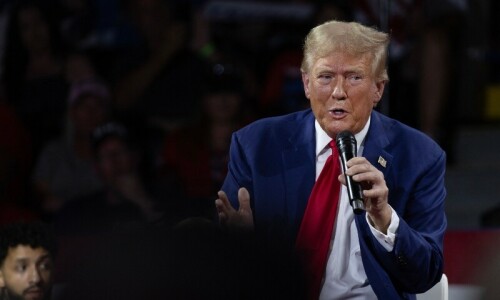THE state has often rightly been criticised for taking half-hearted actions against militants and their supporters of the sectarian and religious variety, despite the fact that these elements have played havoc with national security. This criticism seems particularly justified when, despite the existence of a National Action Plan and a number of counterterrorism agencies, extremists are free to continue their activities, albeit in a more low-key fashion. But the state may be in the process of readjusting its lethargic attitude towards countering extremist groups. As some media outlets reported on Thursday, the CNICs of over 2,000 individuals on the Fourth Schedule — including the head of the proscribed Ahle Sunnat Wal Jamaat as well as Lal Masjid cleric Abdul Aziz — have been blocked at Nacta’s insistence. Moreover, last month the State Bank also froze the accounts of those individuals on the Fourth Schedule.
To defeat terrorism in the long run, moves such as the ones mentioned above must be sustained and complemented by other acts that deprive hatemongers and sectarian demagogues of access to funds and space and the liberty to preach their divisive message. Cosmetic measures will be of no use. For example, despite the stated resolve to counter militancy by both the civilian and military leadership, sectarian and extremist figures belonging to ‘banned’ groups have had the freedom to lead rallies, appear on TV and even go for Haj. In fact, on Thursday, individuals from Lal Masjid reportedly made an appearance at Aasia Bibi’s appeal hearing at the Supreme Court. With these facts in mind, we need to ask the counterterrorism authorities a few questions about the blockage of ID cards and funds. Firstly, what does the state plan to achieve in the long run? Will the affected individuals be brought to court, investigated and prosecuted if found guilty of spreading hatred and division? Will the de facto revocation of their national identity document prevent these individuals from rechristening their groups under new names; using mainstream and social media and rallies on Pakistan’s roads to spread their venom? All those who want a more peaceful and progressive Pakistan have for long called upon the state to move in earnest against the preachers of hate and division. But the moves must be substantial and not just for temporary public consumption. Also, innocent people who have not indulged in spreading sectarian or hateful sentiments must not be targeted by these punitive measures.
Published in Dawn, October 15th, 2016











































